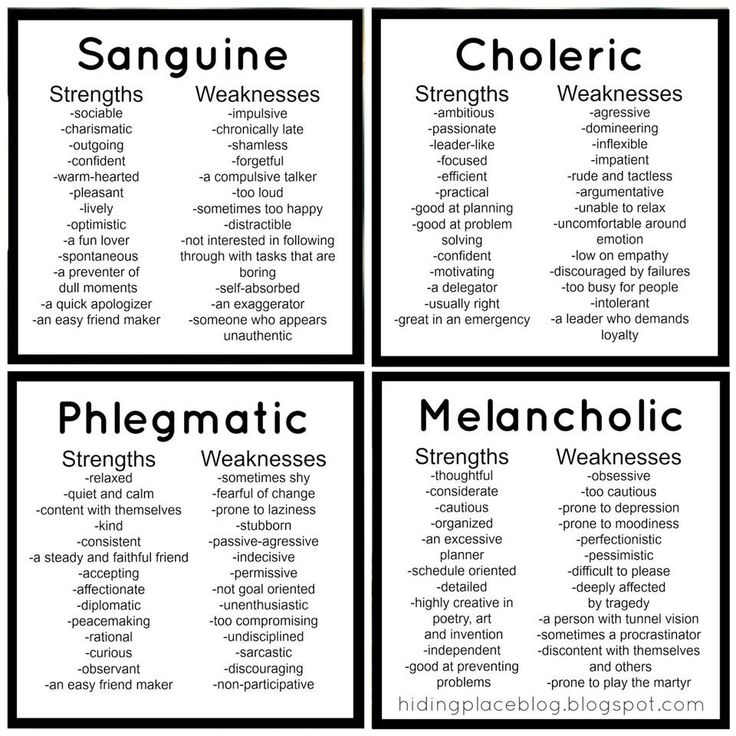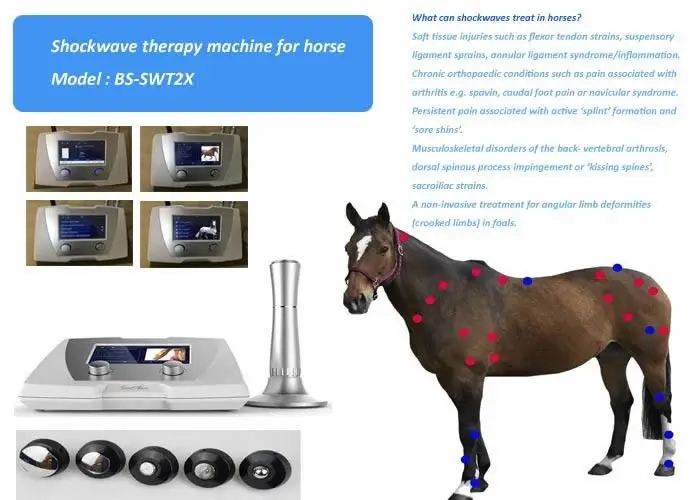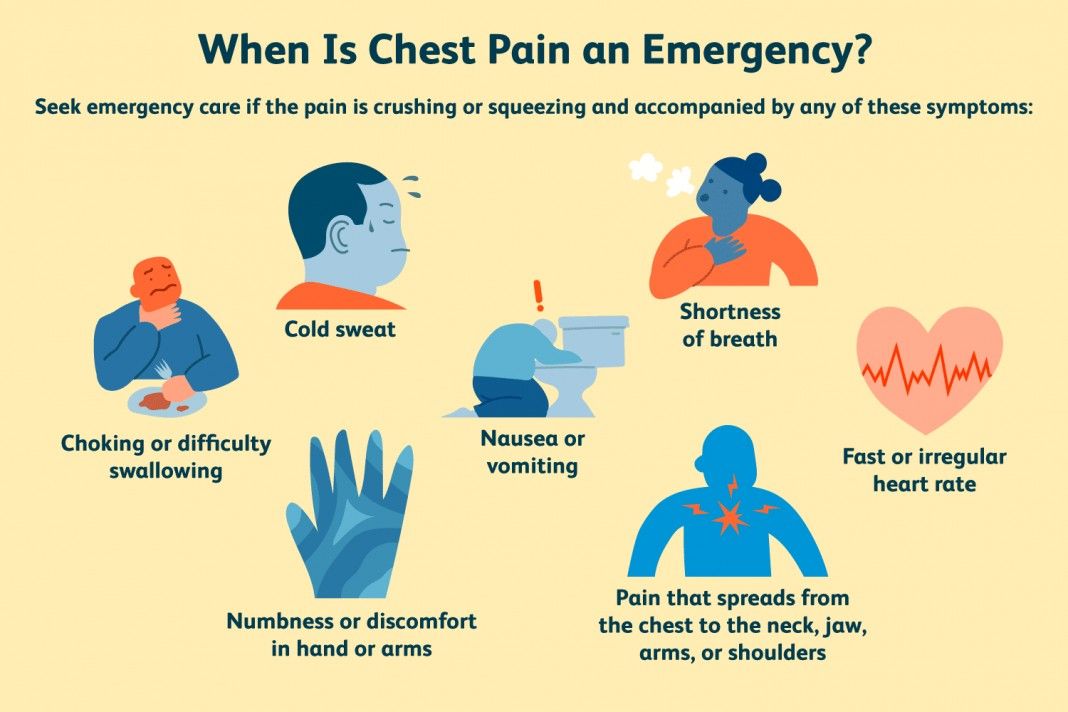Self therapy for your personality type
Self-Care for Each Myers-Briggs® Personality Type
Self-care is one of those terms that I tend to cringe at. As a perfectionist and a very busy mom of five, I tend to shirk off “self-care” as superficial and simply not built into my timeframe. But over time I’ve grown to realize just how crucial it is to imbue every day with moments of joy, nourishment, and peace. It isn’t just about soaking in a tub, sipping wine, and wearing cucumbers over your eyelids…although that may be an excellent idea! It’s not all about manicures and extravagant vacations. It’s about maintaining your wellness and making time for your own interests and stress-reducing activities. When you ignore that you almost always suffer the consequences.
Not sure what your personality type is? Take our new personality questionnaire here. Or you can take the official MBTI® here.
This post contains affiliate links. I only recommend products I truly believe in.
- Consequences of Ignoring Self-Care:
- ISTJ Self-Care
- ISFJ Self-Care
- ESTJ Self-Care
- ESFJ Self-Care
- ISTP Self-Care
- ISFP Self-Care
- ESTP Self-Care
- ESFP Self-Care
- INTJ Self-Care
- INFJ Self-Care
- ENTJ Self-Care
- ENFJ Self-Care
- INTP Self-Care
- INFP Self-Care
- ENTP Self-Care
- ENFP Self-Care
Estimated reading time: 16 minutes
Consequences of Ignoring Self-Care:Ignoring your own needs can make you resentful of the people you are spending all your time serving. Nobody wants that. You don’t want that, and your family and friends will be able to sense your resentment. It will almost always end up hurting relationships and making you feel worse than ever.
Ignoring self-care can mean serious health consequences; not only physically, but mentally. For example, did you know that laughter lowers your blood pressure, reduces stress hormones, works your abs, and improves cardiac health? Do you know what exhaustion does? It can negatively impact your heart health, make you more prone to obesity, high blood pressure and diabetes.
For me, ignoring self-care means migraines, losing my hair, feeling depressed and stressed. My PTSD, which I fight daily to keep at bay, flares up more.
I mean, really guys…or…me (because I still inwardly want to ignore self-care) it’s time we took care of ourselves! And not just in a once-a-year way; in a regular, attainable way. So here are some options for each personality type. Keep in mind, there are LOTS of ways each type can enjoy self-care. I’d like to do a whole series about this topic that goes into more depth. But for now, this is a good introduction for each type.
I’d like to do a whole series about this topic that goes into more depth. But for now, this is a good introduction for each type.
ISTJs are extremely focused on their responsibilities and tasks. They are driven by their goals and can get stuck in a routine of over-working or bending over backwards to meet deadlines. It’s important for them to take time for themselves; time to get away and reassess their own needs, desires, and goals. Many ISTJs find that exercising helps to clear their head, others enjoy listening to a favorite song, while others just enjoy talking over their struggles and finding solutions with a very close friend. As Si-dominant personalities, it’s important for ISTJs to take time to reflect without having to worry about deadlines, to-do lists, and social responsibilities.
Some ISTJ Self-Care Ideas:
– Cancel non-essential responsibilities and take time for yourself.
– Exercise. This will boost stress-relieving endorphins and help clear your head from worry.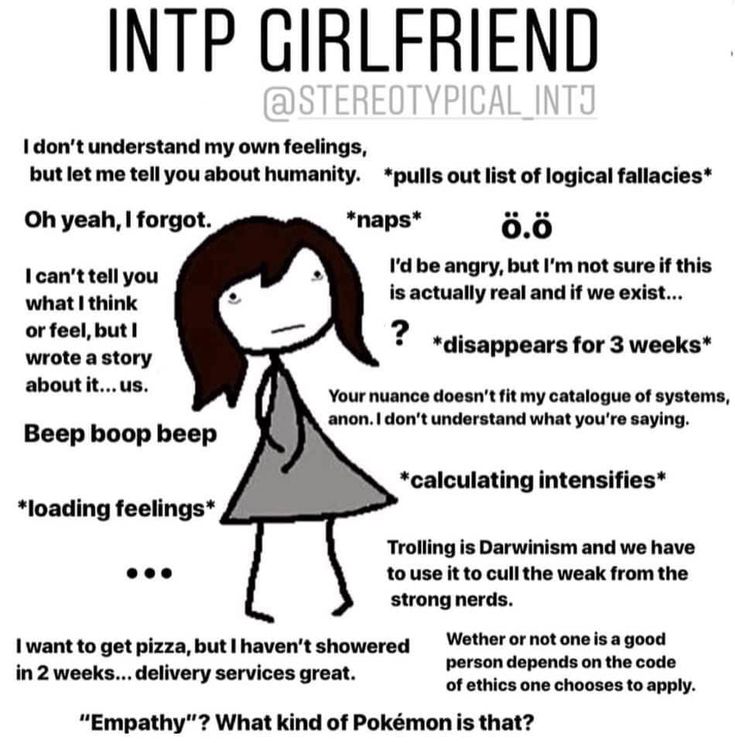
– Watch a favorite movie or read a favorite book.
– Play a puzzle, strategy, or word game.
– Take a walk in nature and notice every sight, sound, and smell.
– Spend time with a trusted friend or family member one-on-one.
– Catch up on sleep!
Related: Getting to Know the ISTJ
ISFJ Self-CareISFJs are extremely generous and devoted individuals who tend to overwork themselves in an effort to meet their family or community’s needs. They often feel selfish when they take time for their own interests, and can get so caught up in taking care of other people that they forget to take care of themselves. Many ISFJs find that one-on-one time with a good friend (a friend who knows how to really listen) is important. Other ISFJs find that time alone in nature refreshes them.
Some ISFJ Self-Care Ideas:
– Cancel non-essential responsibilities and take time for yourself.
– Take a moment to write down a list of your own desires and needs.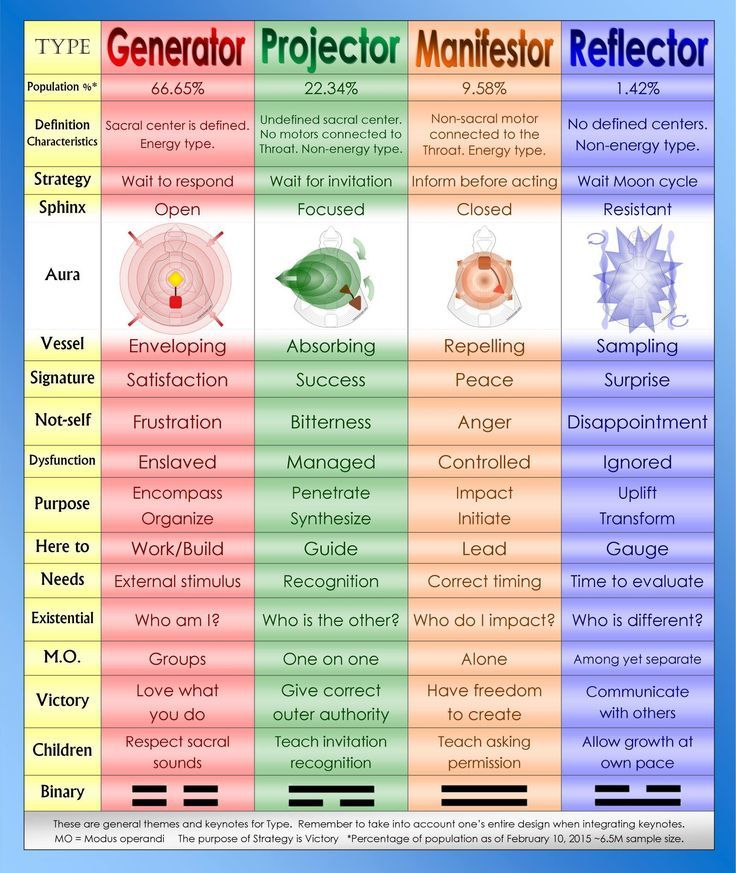 You can get so caught up in taking care of other people that you forget about your own personal needs.
You can get so caught up in taking care of other people that you forget about your own personal needs.
– Vent out your feelings in a journal or with a trusted friend.
– Laugh. Find a favorite comedy or TV show, curl up with your favorite snack, and let loose.
– Take a walk in nature and notice every beautiful detail. Take pictures of things you find especially beautiful.
– Catch up on rest.
Related: 10 Things You Should Never Say to an ISFJ
ESTJ Self-CareESTJs are hard workers and tend to fill up their days with tasks and responsibilities. They may get so caught up in deadlines and projects that they forget to just enjoy the little things or appreciate what they’ve accomplished along the way. Socializing with good friends tends to recharge ESTJs, but they also need to make time to wind down and enjoy the fruits of their labors.
Some ESTJ Self-Care Ideas:
– Engage in a relaxing, hands-on hobby like gardening, cooking, or crafting.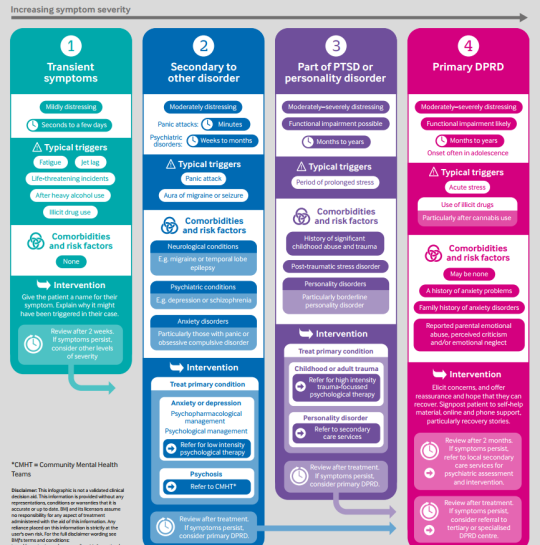
– Exercise! This releases stress-reducing endorphins in your brain.
– Take a long, hot soak in the tub and think about your many blessings.
– Play a fun sport with your friends.
– Relax and enjoy a favorite movie.
– Watch a favorite sporting event on TV.
– Catch up on sleep.
– Eat a stress-reducing snack like nuts, oatmeal, dark chocolate (in moderation), or salmon.
Related: How Each Myers-Briggs® Type Reacts to Stress (and How to Help!)
ESFJ Self-CareESFJs are hands-on helpers who work tirelessly to take care of the people in their lives. They are usually looking for practical ways they can contribute to their communities and families and tend to prefer a busy life of activity and friendship. Self-care for the ESFJ often revolves around friendship; whether it’s meeting a friend for a hot cup of coffee, or taking a jog with their partner. They also need occasional time alone to refresh themselves and process all their thoughts.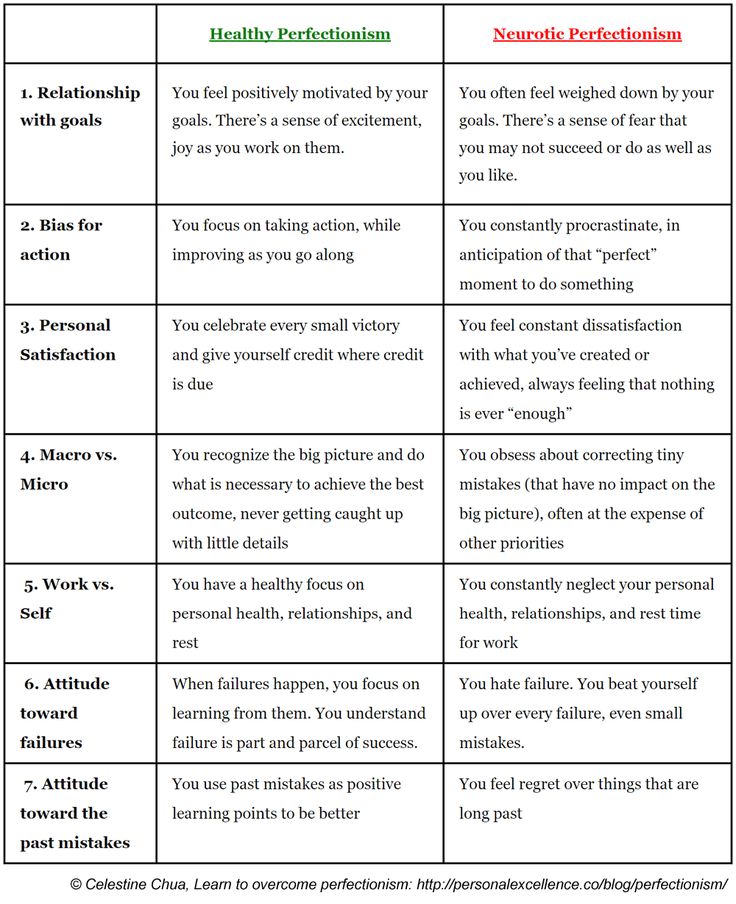
Some ESFJ Self-Care Ideas:
– Meet a friend for coffee and conversation.
– Engage in a tranquil, independent activity like baking, crafting, or outdoor photography.
– Exercise with a friend.
– Give yourself a spa day; enjoy a facial, take a soak in a hot tub, give yourself a pedicure.
– Sing along to your favorite songs.
– Pick a small project that needs organizing and work on that while listening to peaceful music.
– Make sure you’re getting enough sleep.
Related: Understanding ESFJ Feeling
ISTP Self-CareISTPs keep their minds (and hands) busy by analyzing, fixing, and troubleshooting. They are often clever mentally and skilled in technical and mechanical fields. They like to balance plenty of activities with lots of alone time to relax and refresh themselves. According to the MBTI® Manual, ISTPs like to de-stress by watching television. That said, many ISTPs I spoke with had alternate self-care preferences. You can see some suggestions below.
You can see some suggestions below.
Some ISTP Self-Care Ideas:
– Do a sport that requires concentration. Something like racquetball or golf.
– Go for a long drive.
– Hang out on the couch with some good food and your favorite TV shows.
– Play your favorite video game.
– Catch up on some much-needed rest.
– Snack on foods that relieve stress (nuts, red peppers, dark chocolate, and salmon are several good choices).
Related: The Top 25 Favorite ISTP Movies
ISFP Self-CareISFPs are a fascinating and often misunderstood personality type. They balance a bold desire for adventure with kindness, sensitivity, and compassion. People often mistake their soft-spoken demeanor for weakness, when in fact they have a certain restless bravery that drives them. They are often found in healthcare fields, business, and law enforcement and they excel in the arts and anything that uses their real life skills.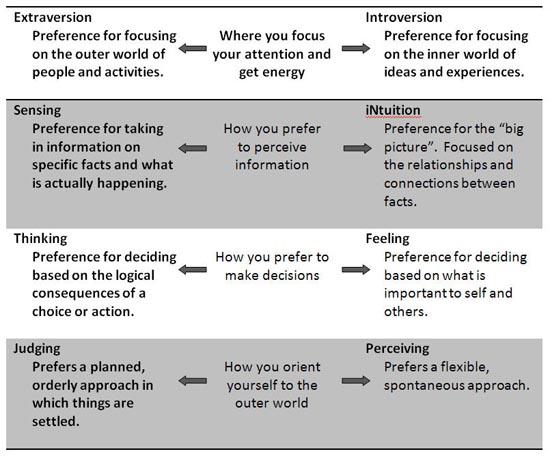 ISFPs tend to be a high-stress type. According to the MBTI® Manual, they experience high stress in relation to finances, children, health, and caring for aging parents. It’s important for these individuals to take time out of their schedule to de-stress and enjoy some quiet alone time to reflect and process their thoughts.
ISFPs tend to be a high-stress type. According to the MBTI® Manual, they experience high stress in relation to finances, children, health, and caring for aging parents. It’s important for these individuals to take time out of their schedule to de-stress and enjoy some quiet alone time to reflect and process their thoughts.
Some ISFP Self-Care Ideas:
– Get some soft blankets, a few healthy snacks, and enjoy a TV marathon of your favorite show.
– Take a walk in nature and notice every sight, sound, and texture.
– Get out some art supplies and create whatever your imagination brings to mind.
– Journal your thoughts and feelings.
– Exercise to release stress-reducing endorphins in your brain.
– Catch up on sleep.
– Get a massage.
– Enjoy some stress-reducing snacks like nuts, red bell peppers, dark chocolate (in moderation), or oatmeal.
Related: 10 Surprising Truths About ISFPs
ESTP Self-CareESTPs are known for their charisma, adventurous nature, and quick-witted adaptability to life.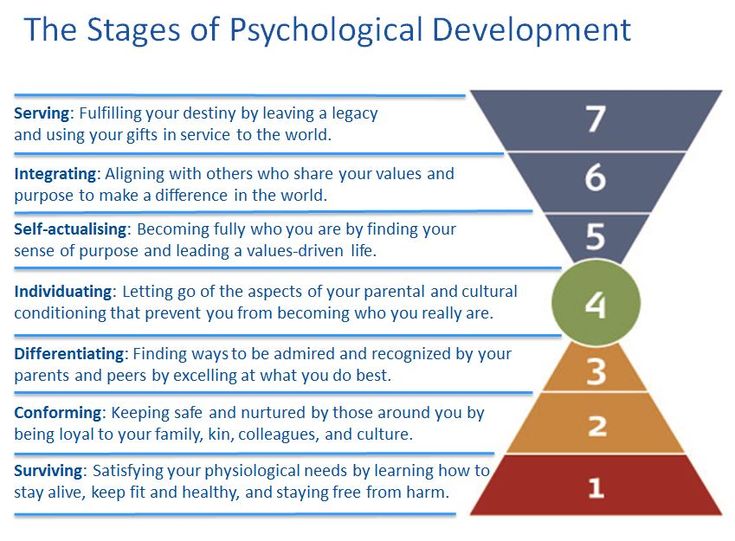 These types are rarely flustered or overwhelmed, in fact, according to the MBTI® Manual, ESTPs experience the lowest stress of all the personality types. That said, they can still work themselves too hard, push themselves (often physically) to a breaking point, or forget to take care of their health needs. ESTPs thrive on action and actually enjoy sports more than any of the other Myers-Briggs® types. For them, it’s important to remember to rest, recharge, and take a little time for peace and quiet (before getting back into action!).
These types are rarely flustered or overwhelmed, in fact, according to the MBTI® Manual, ESTPs experience the lowest stress of all the personality types. That said, they can still work themselves too hard, push themselves (often physically) to a breaking point, or forget to take care of their health needs. ESTPs thrive on action and actually enjoy sports more than any of the other Myers-Briggs® types. For them, it’s important to remember to rest, recharge, and take a little time for peace and quiet (before getting back into action!).
Some ESTP Self-Care Ideas:
– Make sure you’re getting enough rest.
– Enjoy a few safe, impulsive decisions, like going out for ice cream or taking $10. and spending it anywhere.
– Play a sport.
– Play a favorite video game.
– Go hiking in nature.
– Go on a bike ride.
– Relax at home with one of your favorite TV series and a healthy snack.
Related: Understanding ESTP Sensing
ESFP Self-CareESFPs are known for their compassion, adaptability, and sense of adventure. These types know how to “make lemons out of lemonade” and turn even the bleakest crisis into a positive experience. They work hard to make people laugh and feel at ease, and they also are attracted to excitement and thrills. For the ESFP self-care means balancing social time with alone time. It’s important for them to make time to process their thoughts and feelings, and it’s also important to connect with others in friendship. ESFPs tend to experience stress when trying to make long-term, important decisions. It can be helpful for them to have a good friend to confide in during times when they feel unsure about which direction to take.
These types know how to “make lemons out of lemonade” and turn even the bleakest crisis into a positive experience. They work hard to make people laugh and feel at ease, and they also are attracted to excitement and thrills. For the ESFP self-care means balancing social time with alone time. It’s important for them to make time to process their thoughts and feelings, and it’s also important to connect with others in friendship. ESFPs tend to experience stress when trying to make long-term, important decisions. It can be helpful for them to have a good friend to confide in during times when they feel unsure about which direction to take.
Some ESFP Self-Care Ideas:
– Get some alone time to listen to music and process your feelings.
– Go for a hike or a jog in nature and notice all the beauty around you.
– Do yoga or another relaxing exercise.
– Go out for dinner or coffee with some trusted friends.
– Call some good friends and enjoy a carefree game night together.
– Catch up on sleep.
– If you’re feeling overwhelmed with long-term decisions, enlist the help of a trusted (but not pushy) friend who can help you sort through your options.
Related: The Top 7 Gift Ideas for ESFPs
INTJ Self-CareINTJs are visionary, future-focused and logical. These types have active minds and are determined to make good use of their time. They are excellent organizers, strategists, and innovators who embrace the future with determination and logical foresight. Self-care for the INTJ means getting plenty of time alone to process and synthesize information. INTJs who rely heavily on their auxiliary function (Extraverted Thinking) can get stuck in “action” mode and be so focused on getting things done that they forget to give their mind time to wander, tinker with ideas, and access intuition. Finding time for uninhibited thought and musing is important for this type.
INTJ Self-Care Ideas:
– Cancel non-essential responsibilities and get some quality alone time.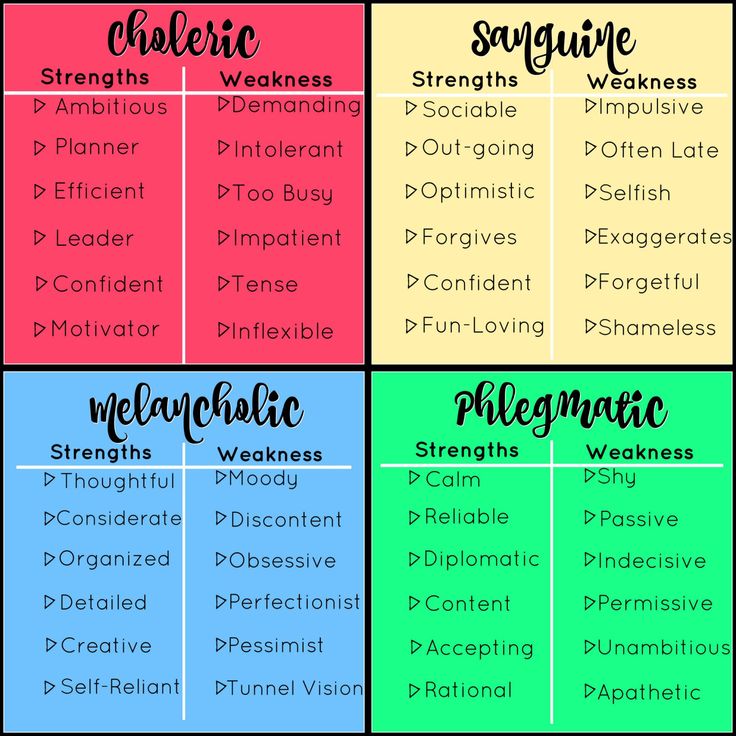
– Read a favorite book or listen to some classical music.
– Play a musical instrument.
– Talk to a counselor or trusted friend if you’re experiencing ongoing stress or depression.
– Exercise.
– Catch up on sleep.
– Go to a quiet place and just let your mind wander without any real direction. Just see where your intuition might lead you.
Related: How Each Myers-Briggs® Type Reacts to Stress (and How to Help!)
INFJ Self-CareINFJs are known for their keen insights, their empathy, and their vision for the future. These individuals are often perfectionists who push themselves to an ideal that is almost unattainable. This tends to be the cause of much of their stress. They also tend to struggle with over-empathizing with the people around them to a degree where they feel overwhelmed. It’s important for them to get plenty of alone time to process and synthesize their thoughts, access intuition, and figure out their path for the future.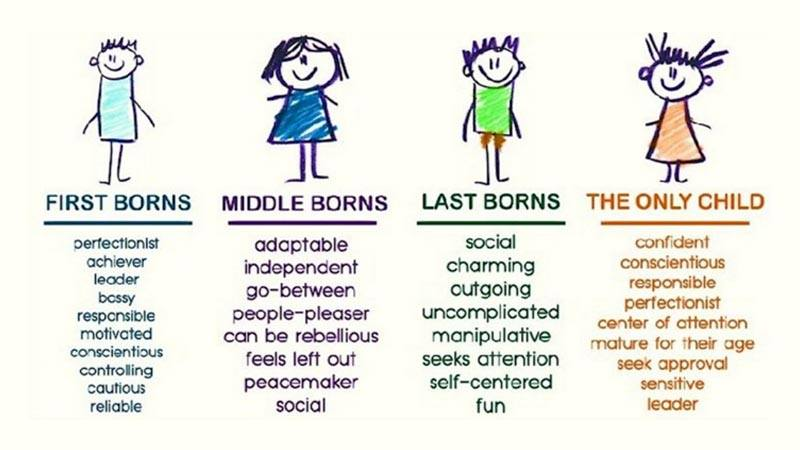 It’s also important for them to balance this alone time with time spent around good friends or family members who accept them for who they are and are willing to listen to their thoughts and concerns.
It’s also important for them to balance this alone time with time spent around good friends or family members who accept them for who they are and are willing to listen to their thoughts and concerns.
INFJ Self-Care Ideas:
– Get some alone time to just think and process without any real direction. Let your intuition take the wheel.
– Read a favorite book and listen to some classical music.
– Take a walk in nature and enjoy every sight, sound, and texture.
– Spend time with animals.
– Talk to a trusted counselor or friend if you’re feeling extremely stressed or depressed.
– Exercise.
– Get some healthy snacks and enjoy some Netflix.
– Take a hot bath or shower.
Want a comprehensive guide to the INFJ personality type? Check out my eBook, The INFJ – Understanding the Mystic.
Related: INFJs and the Challenge of Staying Present
ENTJ Self-CareENTJs are extremely ambitious, hard-working, and determined.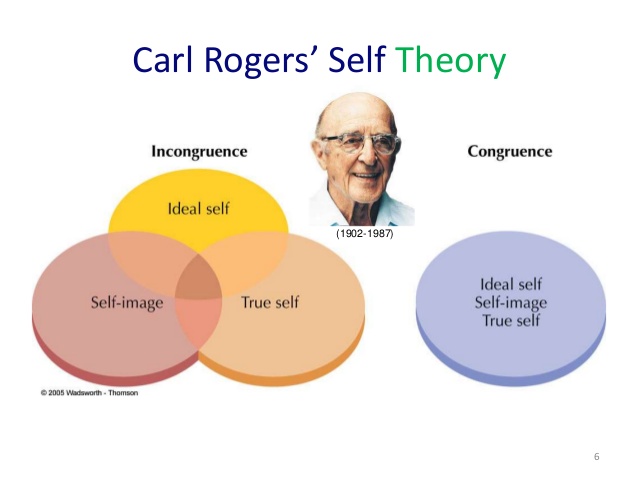 They love to triumph over new challenges and they continually strive to improve and tackle new skills and goals. These types may laugh at the idea of “self-care” and feel that their lives are too busy and full to take the time for it. However, they do tend to enjoy exercising to relieve stress or discussing solutions and ideas with their friends.
They love to triumph over new challenges and they continually strive to improve and tackle new skills and goals. These types may laugh at the idea of “self-care” and feel that their lives are too busy and full to take the time for it. However, they do tend to enjoy exercising to relieve stress or discussing solutions and ideas with their friends.
Self-Care Ideas for ENTJs:
– Get some exercise to release stress-reducing endorphins.
– Make sure you’re getting enough sleep.
– Eat stress-reducing snacks like nuts, dark chocolate (in moderation), salmon, oatmeal, or red bell pepper strips.
– If you’re feeling stressed, take some time to re-analyze your situation and make a list of attainable goals.
– Vent to a trusted friend.
– Enjoy the company of good friends over dinner.
– Work, but don’t overdo it (many ENTJs mentioned that work is a form of self-care for them!).
Related: 10 Things You Should Never Say to an ENTJ
ENFJ Self-CareENFJs are known for their inspirational nature, their empathy, and their vision for the future.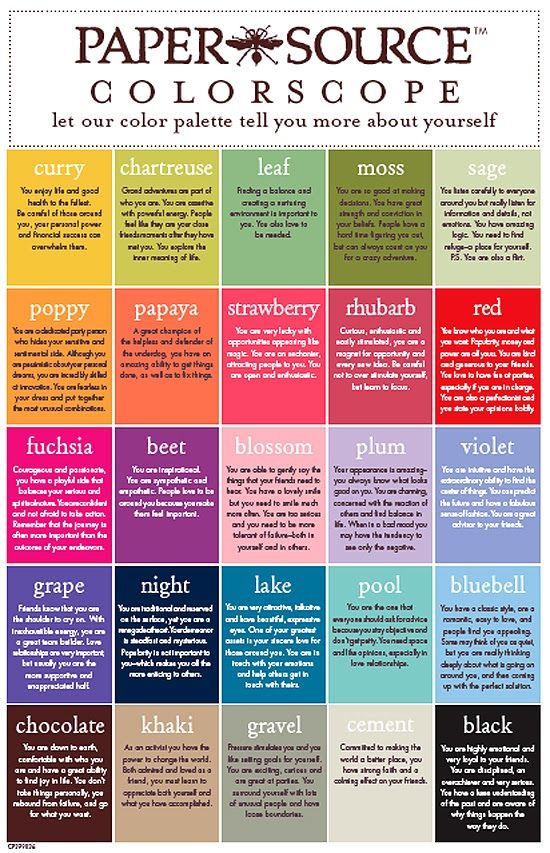 These types are often enthusiastic and full of energy and excitement about their dreams and the dreams of their friends. When it comes to self-care, these types need to remember not to give themselves away to such a degree that they are physically or emotionally depleted. They tend to have a hard time saying no to anyone who needs help. So making time to examine their own needs and desires is important. It’s also important for them to remember that a little alone time can be a good thing and can help them tap into their intuition and become more balanced.
These types are often enthusiastic and full of energy and excitement about their dreams and the dreams of their friends. When it comes to self-care, these types need to remember not to give themselves away to such a degree that they are physically or emotionally depleted. They tend to have a hard time saying no to anyone who needs help. So making time to examine their own needs and desires is important. It’s also important for them to remember that a little alone time can be a good thing and can help them tap into their intuition and become more balanced.
Self-Care Ideas for ENFJs:
– Find a trusted friend to talk to one-on-one.
– Exercise with a good friend.
– Spend time with animals.
– Catch up on sleep!
– Enjoy some time in nature; notice every sight, sound, and texture.
– Get some of your favorite snacks and watch a light-hearted movie.
– Think about your own personal goals and imagine ways to reach them.
– Do yoga or another relaxing, quiet exercise.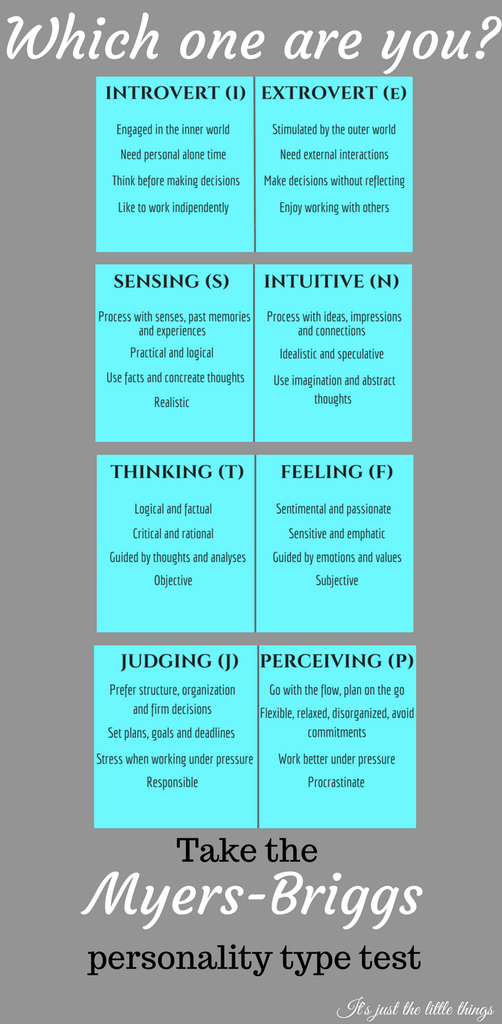
Related: Understanding ENFJ Feeling
INTP Self-CareINTPs are independent, complex individuals who prize knowledge, innovation, and theoretical possibilities. These types love to learn and challenge themselves mentally, but they also enjoy making time for their own leisure activities. INTPs tend to balance out independent learning time with favorite activities like playing computer or video games, reading, or enjoying art. For INTPs, self-care is important because they tend to have high-stress levels. According to the MBTI® Manual, INTPs experience high stress in relation to school, children, and intimate relationships.
Self-Care Ideas for INTPs:
– Cancel non-essential responsibilities and enjoy some alone time.
– Play a favorite computer or video game.
– Get some healthy snacks and enjoy a new, interesting TV series.
– Listen to music.
– Read a new, compelling book.
– Take a drive or a walk in nature.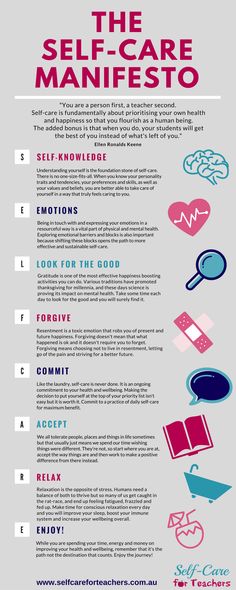
– Catch up on sleep.
– Find an independent exercise to do alone, like tai-chi, jogging, or yoga.
Related: 10 Things You Should NEVER Say to an INTP
INFP Self-CareINFPs are known for their compassion, creativity, and rich imagination. These types are often artists, writers, or counselors. Improving the world and finding creative forms of self-expression are vitally important to them. Self-care is extremely important for INFPs, because they tend to have high stress levels, and according to the MBTI® Manual, they tend to have higher instances of depression than many of the other types. It’s very important for them to get regular alone time, time for creativity, and time to reflect on their emotions and explore their own interests and desires.
Self-Care Ideas for INFPs:
– Take some time to write, whether it’s journaling or creative writing.
– Get lost in a favorite book!
– Cancel non-essential responsibilities and enjoy some quality alone time.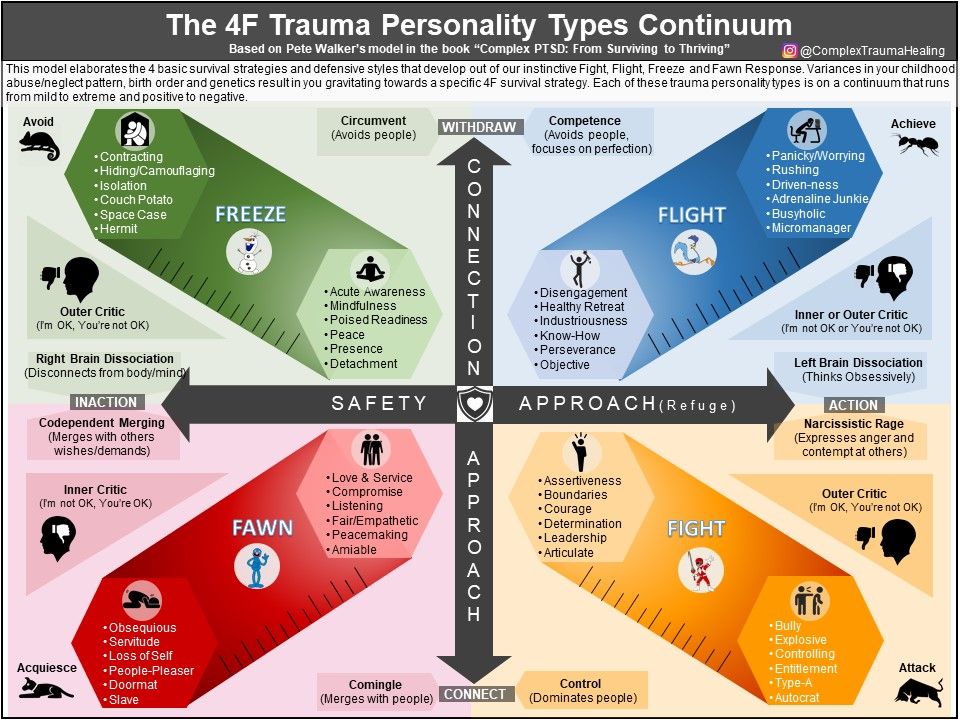
– Spend time with animals.
– Visit an art museum.
– Create art, even if you’re not a pro at it.
– Listen to music.
– Catch up on sleep.
– Take a quiet walk in nature and notice all the beauty around you.
Related: 12 Stress-Busting Techniques for INFPs
ENTP Self-CareENTPs are known for their enterprising, intellectual nature. These visionaries are driven to see the potential of every possibility that crosses their mind. They tend to be optimists, and according to the MBTI® Manual, they have lower stress than almost all of the other personality types (besides ESTPs). Self-care for ENTPs means making time for creativity, getting alone time to fully utilize their auxiliary thinking function, and maintaining their physical wellness. Because ENTPs have inferior Introverted Sensing (Si) they tend to forget to take care of their physical needs as they pursue endless ideas and possibilities.
Self-Care Ideas for ENTPs:
– Go out driving with no particular destination in mind.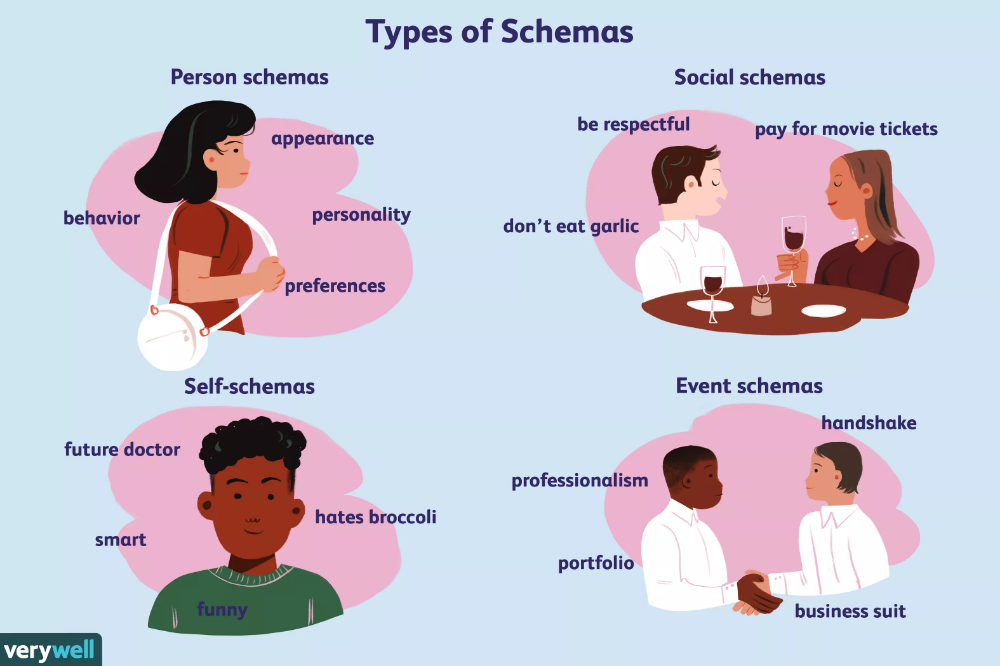
– Catch up on sleep.
– Make sure you’re eating healthy and at regular intervals.
– Explore new music or play an instrument.
– Play a strategy game or solve a brainteaser.
– Learn something new (watch a TED Talk or find a new idea to explore).
– Play a sport with some friends.
– Play a favorite computer or video game.
– Read a book.
Related: 10 Surprising Truths About ENTPs
ENFP Self-CareENFPs are known for their enthusiasm, compassion, and endless ideas for the future. These types are driven to make the world a better place, to explore the potential of every idea, and to understand people on a meaningful level. When it comes to self-care, ENFPs need to remember to take time for peace and quiet. They are often referred to as the “most introverted extroverts” and mention the need for alone time regularly. They also need to remember to take care of their physical needs. Because they have inferior Introverted Sensing (Si) they can become out of touch with their bodies when they are focused on their ideas (which is almost all the time!).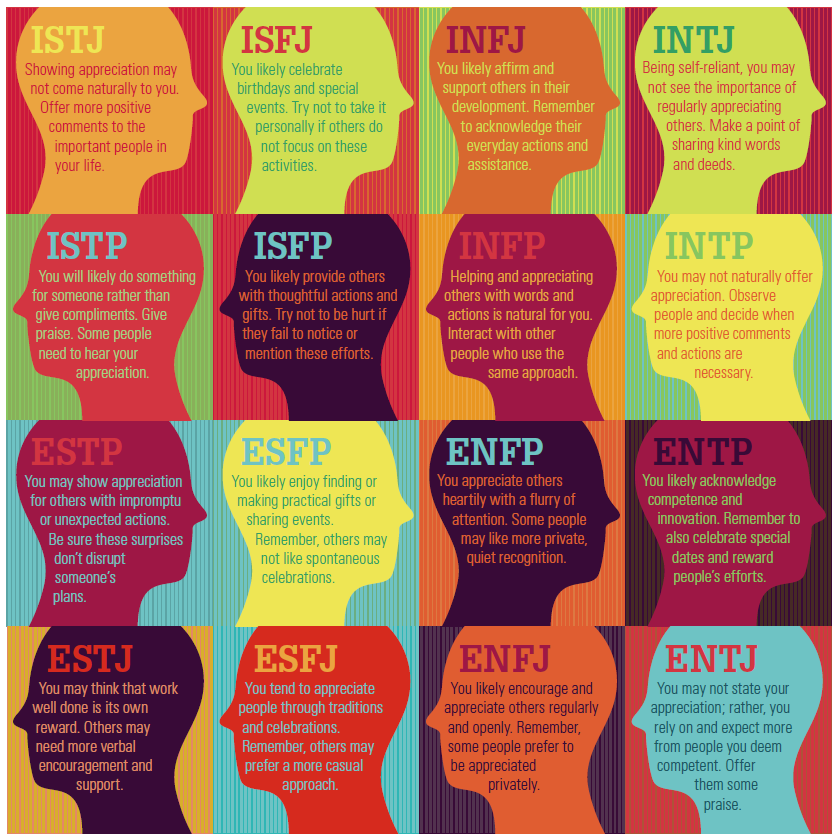
Self-Care Ideas for ENFPs:
– Make sure you’re getting enough sleep.
– Examine your day and make sure you’re getting enough healthy food to eat.
– Listen to music or play an instrument.
– Visit an art museum and immerse yourself in each picture.
– Read a book.
– Do some creative writing or journaling.
– Plan a trip or adventure, even if you can’t afford for it to be a reality right now. The dream is always good.
– Spend one-on-one time with a good friend.
– Spend time in nature.
Related: Understanding ENFP Wanderlust
What Are Your Thoughts?
What do you do for self-care? Share your thoughts with us and other readers in the comments!
Find out more about your personality type in our eBook, Discovering You: Unlocking the Power of Personality Type.
- More
Self-Care Tips by Personality Type
For solitude-seeking Introverts, there’s nothing like having some time for yourself.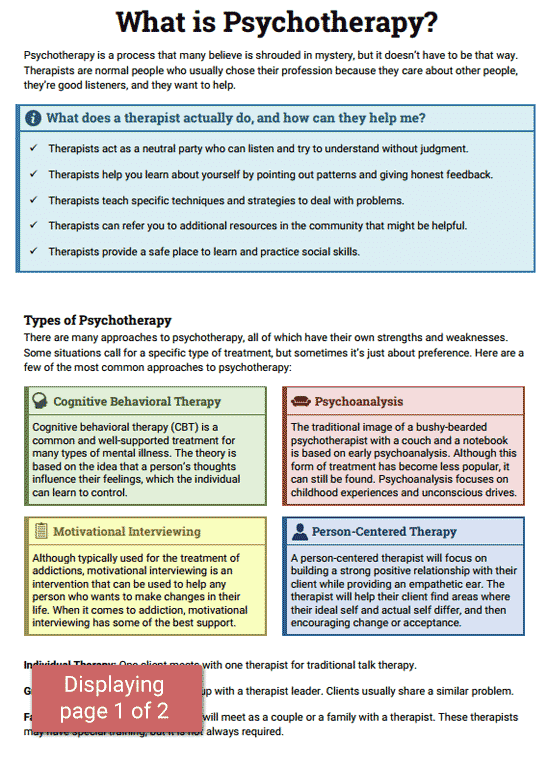 As an Introvert myself, I can attest that having this precious ‘me time’ is crucial to my mental wellbeing. Leaving my desk and going for a walk, or rewatching an old favorite TV show accompanied by a cup of tea, always helps me re-energize and unwind.
As an Introvert myself, I can attest that having this precious ‘me time’ is crucial to my mental wellbeing. Leaving my desk and going for a walk, or rewatching an old favorite TV show accompanied by a cup of tea, always helps me re-energize and unwind.
Truth is, both Extraverts and Introverts can benefit from self-care. By taking a little time away from your busy schedule to indulge in activities that bring you peace and joy, you’re stepping away from exhaustion and burnout.
Now, self-care doesn’t look the same for everybody—that’s where typology comes in! From hot baths to beauty masks, here are the best self-care tips for your personality type.
INFP—Go for a walk in nature
The compassionate and creative INFP often neglects taking care of themselves. To let your imagination run wild, there’s nothing better than immersing yourself in nature. Go for a walk and allow yourself to be present, soaking in the beauty around you. It will surely soothe your mind and fill your spirits.
INTJ—Catch up on sleep
INTJs are efficiency personified, but there’s something they might not be scheduling in their color-coded spreadsheets: resting! That’s right INTJs of this world, I am here to tell you that you’re so focused on getting things done, you’re forgetting to do a bit of nada. It’s time to shut off. Make sure you’re sleeping enough hours, take a nap after lunch, or create a soothing nighttime routine if you’re finding it too hard to detach yourself from doing stuff.
INFJ—Journal your stress away
While some decompress by venting to their friends about their issues, INFJs often need to find a creative outlet to process their feelings. Journaling can be an effective way to get in touch with your emotions and distill your feelings and thoughts onto paper. Personally, keeping a diary helps me make sense of the world and who I am, and it gives me that precious alone time for self-reflection.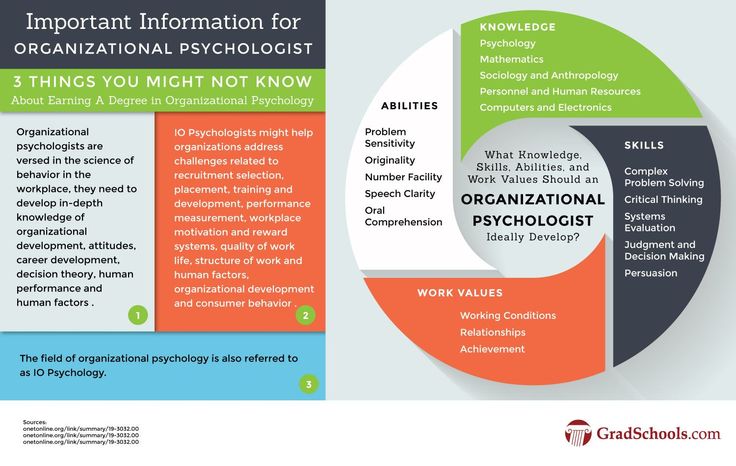
INTP—Pick up a book
As an INTP, your love for absorbing new and interesting facts can be insatiable. That’s why reading is an ideal form of self-care for these logically brilliant personalities. Pick a non-fic read about one of your niche interests, or lose yourself in a lengthy, engrossing novel.
ENFP—Call a friend
ENFPs are natural social butterflies. They thrive in large groups and love to be surrounded by their friends and loved ones. As an ENFP, remember that while you can ease up on your own, nothing will make you happier than calling a friend. Share memories, make them feel loved, and enjoy the love you get in return, too.
ENTJ—Work on a puzzle
Some ENTJs might laugh at the idea of self-care. Who has time for that, after all? Well, as much as you’d like to dismiss it, the reality is that you too need to take care of yourself, ENTJ. As these types often have loads of brainpower to burn, engaging in an intricate activity like completing a jigsaw puzzle may help you expend your mental energy, and relax.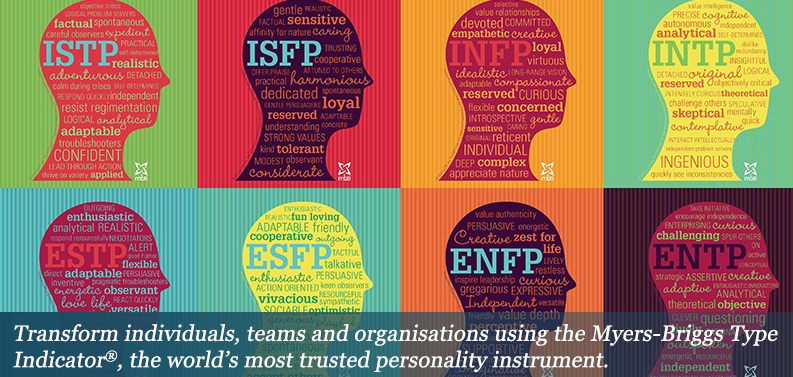
ENTP—Get creative in the kitchen
The witty and innovative ENTP loves the idea of a good challenge, and cooking can definitely be one. Take your self-care moment as an opportunity to shine, ENTP, and show everyone your cooking abilities. Get creative by picking a new, complex recipe, or, if you’re feeling mentally depleted, give your brain a break and choose one that smells like home.
ENFJ—Write ‘thank you’ notes
ENFJs are so willing to help others that they sometimes fail to set boundaries and end up neglecting their own needs. Instead of saying ‘yes’ to others all the time, give back by handwriting some ‘thank you’ notes. This simple act allows you to reflect on the positive things that have happened to you, and it will make your generous heart happy.
ISFJ—Find time to laugh
Your devotion to your family is admirable, ISFJ, but remember to take care of yourself too! For the over committed ISFJ, my advice is to find ways to laugh more.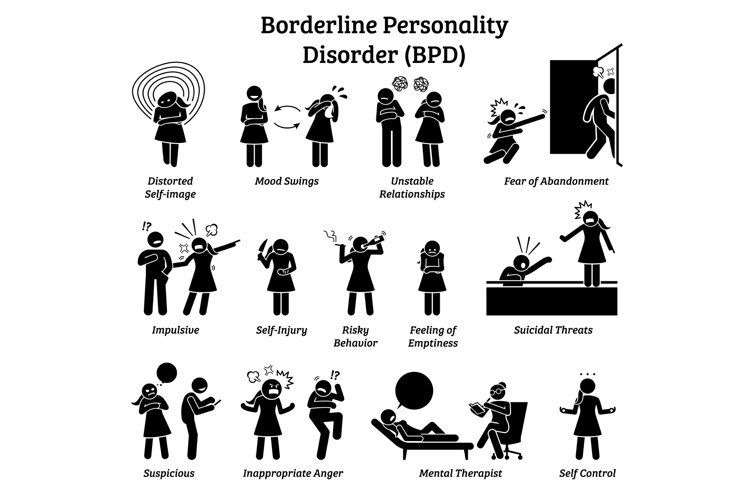 These types often fall into cycles of self-blame and fixating thoughts. When that happens, reframe the situation through a self-humorous lens, and allow yourself to have a laugh.
These types often fall into cycles of self-blame and fixating thoughts. When that happens, reframe the situation through a self-humorous lens, and allow yourself to have a laugh.
ISFP—Pamper your skin
The beauty-seeking ISFPs usually have a strong sense of aesthetic—so why not incorporate that into your self-care? Enjoy this alone time, and use it to try a more elaborate makeup look, or pamper your skin with a new product.
ISTJ—Feed your curiosity
The textbook ISTJ is a lifelong learner, so what better way to decompress than to feed your curiosity? Go down a Wikipedia rabbit hole, watch a docu-series, or listen to an audiobook. Whereas for other types, absorbing information may be tiresome, your ISTJ generally feels content when stimulating their brain.
ISTP—Try a digital detox
For the overly active ISTP mind, self-care means one thing: unplug. Get away from your computer, and go for a bike ride or a long walk.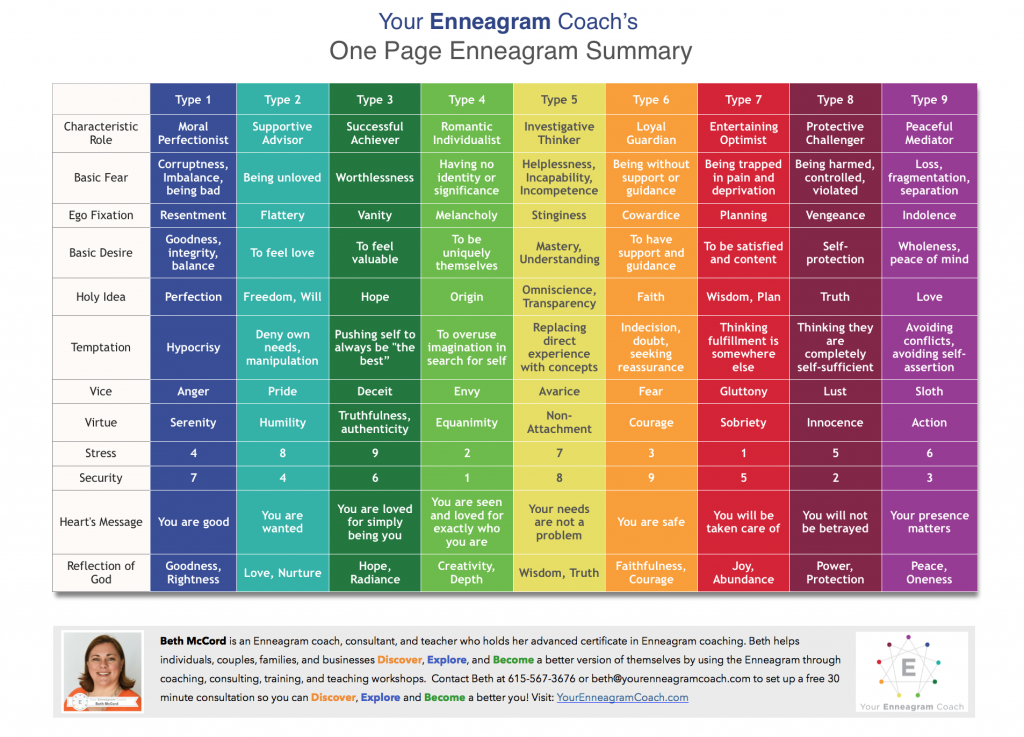 Spending time alone outdoors may help you find the clarity you need to solve the next big problem your brain is already cooking up.
Spending time alone outdoors may help you find the clarity you need to solve the next big problem your brain is already cooking up.
ESFJ—Organize a happy hour
Let’s be real ESFJs, hosting is your thing. Sociable and affable, ESFJ personalities love having friends around, and feel best when other people’s needs are met. So, if you’re looking for a social energy boost, put your organizational skills into good use and host a virtual or IRL happy hour. Remember, the idea is to relax, not burden yourself further, so keep it as low-key as you possibly can.
ESFP—Meditate
ESFPs like to enjoy the best things life has to offer, but you don’t have to go on a shopping spree whenever you’re feeling overwhelmed. If you’re looking for a self-care treat that doesn’t break the bank, a meditation session might be just what you need to recenter and get your creative juices flowing again.
ESTJ—Clean up your space
Your ESTJ likes to feel productive, which means that even a moment of self-care can turn into a practical and useful activity.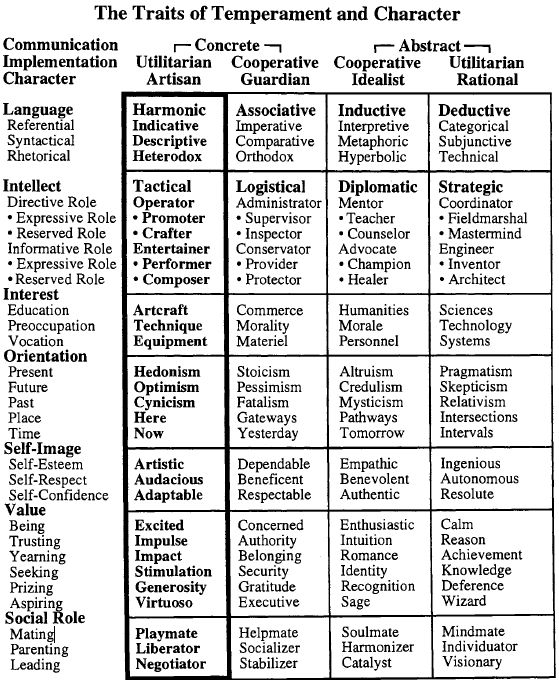 If your ESTJ mind needs a little achievement boost, try cleaning up your space: it can be your desk, closet, or even an entire room. Research suggests that cleaning can be therapeutic, so pick a project and get cleaning.
If your ESTJ mind needs a little achievement boost, try cleaning up your space: it can be your desk, closet, or even an entire room. Research suggests that cleaning can be therapeutic, so pick a project and get cleaning.
ESTP—Move your body
The adventure-seeking ESTP is always on the move. For this energetic personality type, self-care can mean slowing down a bit. You can still decompress by working out, but maybe try a more soothing activity. Our tip? Schedule the bungee jumping for another day, and replace it with a yoga class. Not as thrilling, perhaps, but definitely relaxing.
The bottom line
Whatever your personality type, there’s sure to be a self-care activity that’ll help you get the rest and relaxation you need. We all need some quiet time now and then (yes, even Extraverts!), so browse through our list of suggestions and pick the one that best suits you.
How to distinguish a good psychologist from a bad one
What are the characteristics of a good psychologist
There are a number of qualities without which a psychologist cannot be good.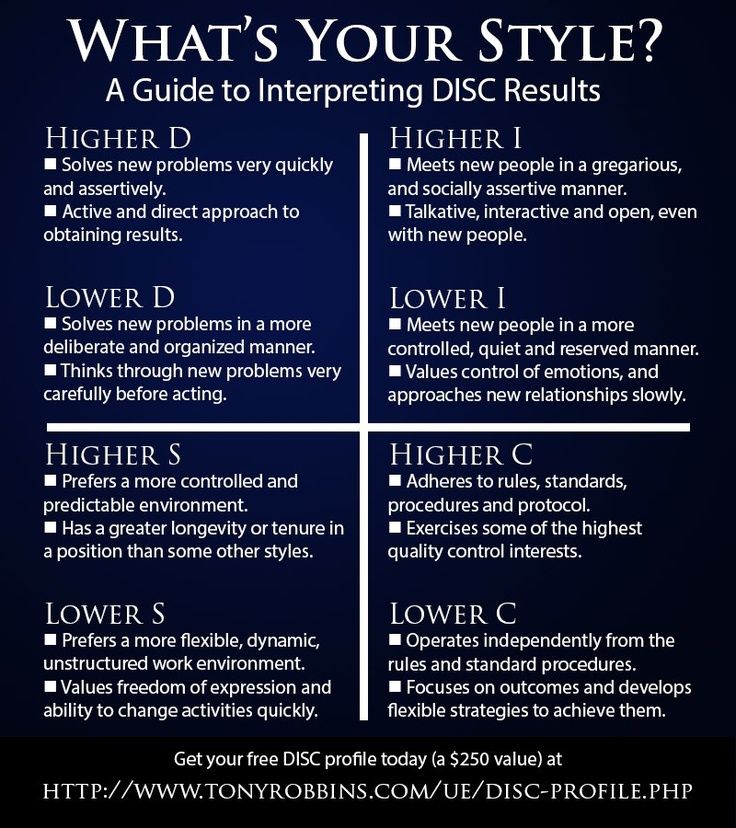 Namely
Namely
- A good psychologist has rich life experience , but not necessarily old. Maybe a young man (25-30 years old). An open, creative person who really wants to help other people.
- Exposes vulnerability , is not afraid to admit his mistakes, shows humility, does not abuse power.
- Respectfully, carefully, gently answers personal questions, and if he refuses to answer, he does it just as respectfully, carefully, and gently.
- Does not expect the client to take care of him. The client is obliged to pay, comply with formal organizational rules (do not be late for sessions, do not miss consultations without warning, do not break the law - do not beat the therapist, do not break his things, etc.). But it can be rude, ungrateful, disrespectful, suspicious, arrogant, etc. The client is under no obligation to serve the therapist emotionally.
What to do to recognize a good psychologist
Ask the psychologist questions
Fill your psychologist with questions on any topic: what do you think about me and my situation? How do you feel about religion? What can you say about drug treatment? Did you enjoy studying at the university? Do you have a family? Do you love cats and why? What would you recommend I do to feel better? Etc.
Ask any questions you think are important that you would like answers from your psychologist. Listen to the answers of the psychologist and listen to yourself: do you get the feeling that something is wrong with this answer?
Keep a diary
Write down all your thoughts about your psychologist and psychotherapy. All the feelings, sensations that your work evokes in you.
Re-read your diary and take seriously what you have written. If something bothers you, it seems to you that the psychologist is not sincere with you, behaves arrogantly, detachedly, coldly - listen to yourself.
Take a break from working with a psychologist
If you find it difficult to sort out your feelings towards a psychologist and psychotherapy, take a break. Take a break for a week, a month, two months. Continue to write down your thoughts and feelings in a diary about working with a psychologist.
After a break, you can return to psychotherapy and take a fresh look at what is happening in it.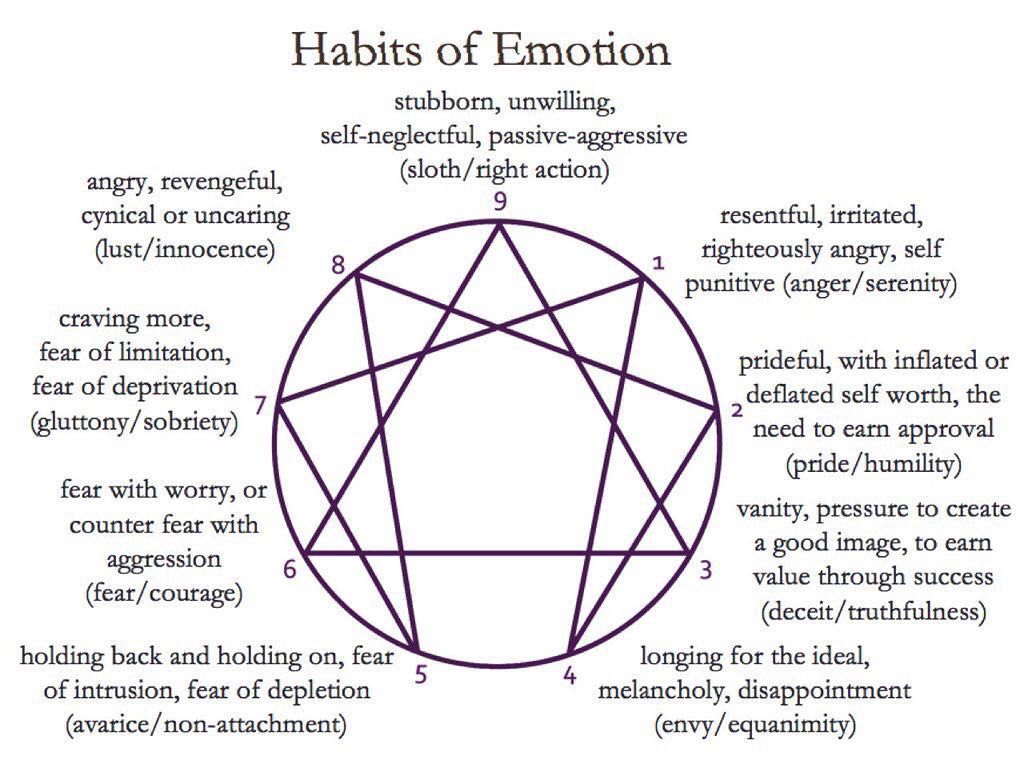
Emphasize self-therapy
Working with a psychologist is just one of the tools that helps you grow, become more aware of yourself, become a more whole person. But the main process should be self-therapy : do for yourself what supports you, deal with your feelings, work on understanding the reasons for your actions, thoughts and feelings - on your own.
For self-therapy, you can use a variety of writing techniques (writing a diary is one of them), art therapy techniques, etc. At present, there is enough information - you can easily find suitable techniques.
If you find it difficult to understand what technique is good, what is not, and how they work, write to me, I will help you figure it out and choose the best methods.
Watch Daniel Makler's video
I wrote this article based on a video in which Daniel Makler tells how to distinguish a good psychologist from a bad one. If something seemed incomprehensible to you in my theses, look at the source. Daniel explains in detail, clearly and with examples all the positions that I wrote about in this article.
Jung and Briggs-Myers Personality Test
This free personality test will determine your personality type in four letters using Jung's typology, which was perfected by Myers, Briggs, von Franz and van der Hoop. Our test is one of several ways to determine your Jungian personality type that is similar, but not identical, to the MBTI (Myers-Briggs Type Indicator) ® MBTI), the Jung Type Indicator and similar materials.
The IDR Labs Personality Test is the property of IDR Labs International.
Our test is one of the few free tests of this type that is statistically controlled and reliable. Despite this, please note that the test is only a kind of indicator that can only roughly determine your inherent qualities.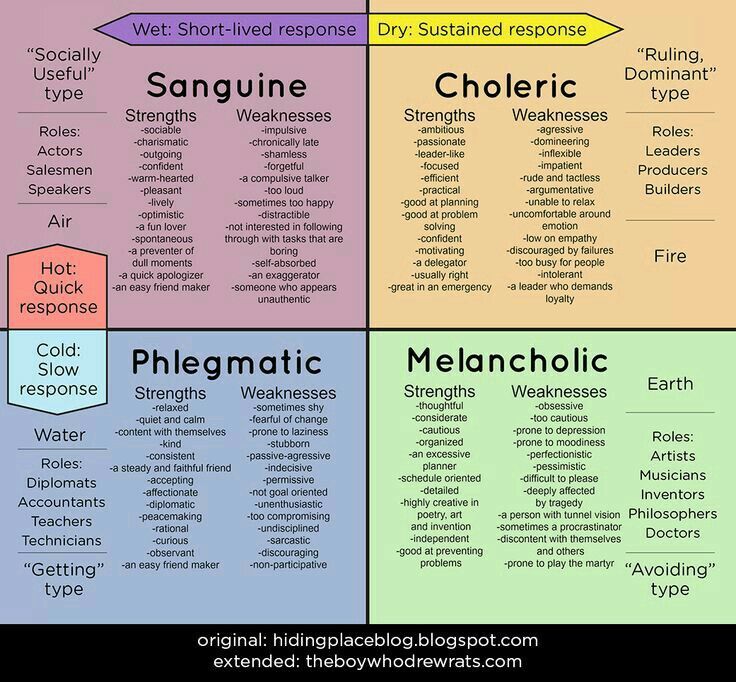
The Myers & Briggs Type Indicator and MBTI test trademarks are owned by the Myers & Briggs Foundation, the United States of America and other countries. The MBTI test was published by The Myers-Briggs. The Young Type Indicator is owned by Psytech International.
All personality tests, whether they are official tests such as the MBTI® (Myers-Briggs Type Indicator) and Jung Type Indicator tests, or free online tests such as this one, are merely indicators that can only tentatively determine your personality type. None of the tests can determine your personality type with absolute accuracy and reliability and replace a detailed study of the works of Myers, Briggs, von Franz, van der Hoop and Jung.
As the publisher of this free online personality test by Jung, Myers, Briggs, von Franz and van der Hoop, we have made every effort to ensure that this test is accurate, complete and reliable.
Like the "official" Jung typology tests and other professionally designed tests, our free online test has been statistically controlled and extensively reviewed to ensure maximum accuracy of results.
To create this test, we used the typology of C. G. Jung's psychological types presented in his work Psychological types and the typology of Isabelle Briggs Myers, co-author of the MBTI® test, which she published in her work Everyone has their own gift . In addition, van der Hoop's works Orientation of consciousness and Character and subconsciousness also had a significant influence on the creation of this test.
This test is based on widely accepted theories, namely Jung, Meyers, von Franz, and van der Hoop's confirmed personality type theories, and not an approximate version of Jung's typology.
Our free online test also uses van der Hoop's work and tries to pinpoint psychological personality types according to his work.
The developers of this free online test are graduates who have experience with numerous personality tests and have also worked professionally with personality typology testing. Before taking our free online test, please note that while the four-letter result may be consistent with other official test results, it should not be confused with the Briggs-Myers, Gray-Wheelwright, and Young Type Indicator.